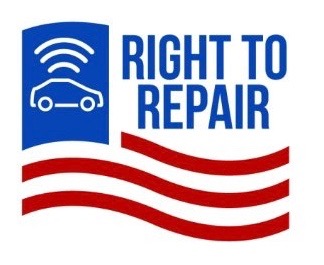Opinion: Question 1. Right To Repair. It’s Your Car. It Should Be Your Choice


Back in 2012, Massachusetts voters approved the Right to Repair law by an overwhelming 86-14 percent margin. That law required vehicle manufacturers to share with independent car repair businesses the same service information that they share with their franchised dealers. What that meant for consumers is they had a choice of where to take their vehicles for repairs and routine maintenance rather than only being able to go to dealerships, which are typically more expensive.
But, technology has advanced, and now car companies are starting to collect diagnostic and repair data wirelessly through a technology called telematics, which is not covered by the 2012 referendum. It’s a loophole to the original law and is an attempt to block independent car repair shops from being able to service your car. Basically, manufacturers want control. Question 1 seeks to update the current Massachusetts law to accommodate for this new technology and ensure consumers continue to have a choice.
Bipartisan legislation in 2019, to update the law, had the support of more than 100 legislators on behalf of the 4000 member Right to Repair Coalition of independent car repair shops, auto parts businesses, consumers and trade associations. When the legislation stalled, the coalition turned to a ballot campaign (Question 1) which you will get to vote on, November 3.
Here is the essence of the initiative taken from the initiative language itself:
Commencing in model year 2022 and thereafter a manufacturer of motor vehicles sold in the Commonwealth, including heavy duty vehicles having a gross vehicle weight rating of more than 14,000 pounds, that utilizes a telematics system shall be required to equip such vehicles with an inter-operable, standardized and open access platform across all of the manufacturer’s makes and models. Such platform shall be capable of securely communicating all mechanical data emanating directly from the motor vehicle via direct data connection to the platform. Such platform shall be directly accessible by the owner of the vehicle through a mobile-based application and, upon the authorization of the vehicle owner, all mechanical data shall be directly accessible by an independent repair facility or a class1 dealer licensed pursuant to section 58 of chapter 140 limited to the time to complete the repair or for a period of time agreed to by the vehicle owner for the purposes of maintaining, diagnosing and repairing the motor vehicle. Access shall include the ability to send commands to in-vehicle components if needed for purposes of maintenance, diagnostics, and repair.
In simple terms, the ballot question would require auto manufacturers to equip vehicles with a standardized open access platform capable of securely communicating mechanical data directly from the vehicle. This is similar to the plug-in OBD-II port open access platform mandated by the 2012 referendum, only it will become a wireless version of the port.
Opponents of the proposed law change are backed by national auto manufacturers and say they will spend at least $25 million to persuade you to vote no. Their campaign is based on unfounded scare tactics trying to convince us that unauthorized individuals will have access to personal data generated by our cars. They want us to believe that our safety will be compromised. This is untrue.
The ballot question specifically limits the access to “mechanical data,” and only with the permission of the owner. So the only data available to your mechanic would be what’s needed to “maintain, diagnose and repair” your vehicle just like it’s been since the 2012 law went into effect.
Be assured, technology exists to ensure that your data is securely transmitted and to only a person you choose.
The International Standards Organization (ISO) has developed industry standards that, if implemented by a vehicle manufacturer, would protect critical vehicle systems, but still permit data to be securely transmitted wirelessly directly from a vehicle to a car owner or to any repair shops they designate. The standards would work similar to online banking, using a system of digital certificates to authenticate data transfers, meaning only you and those that you authorize can have access to the mechanical data generated by your vehicle. The standards also protect bi-directional communications that are often necessary to diagnose and repair a vehicle.
The voters got it right in 2012. The auto manufacturers who opposed the consumers back then have found a technical loophole. If you want to continue to have the choice as to where you take your car for servicing, vote Yes on 1.
Amherst Resident Stan Rosenberg is past President of the Massachusetts Senate. As our former State Senator, he helped negotiate the 2012 Right to Repair Law
